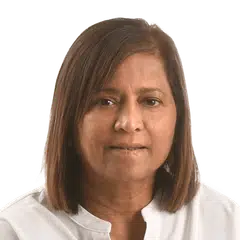AI is not the future of work; it’s already here and helping people work smarter
A pre-school educator, a photographer, a nurse and a lawyer tell The Straits Times how they overcame their initial fears and doubts to learn how to use AI to work smarter and more efficiently.
Sign up now: Get ST's newsletters delivered to your inbox
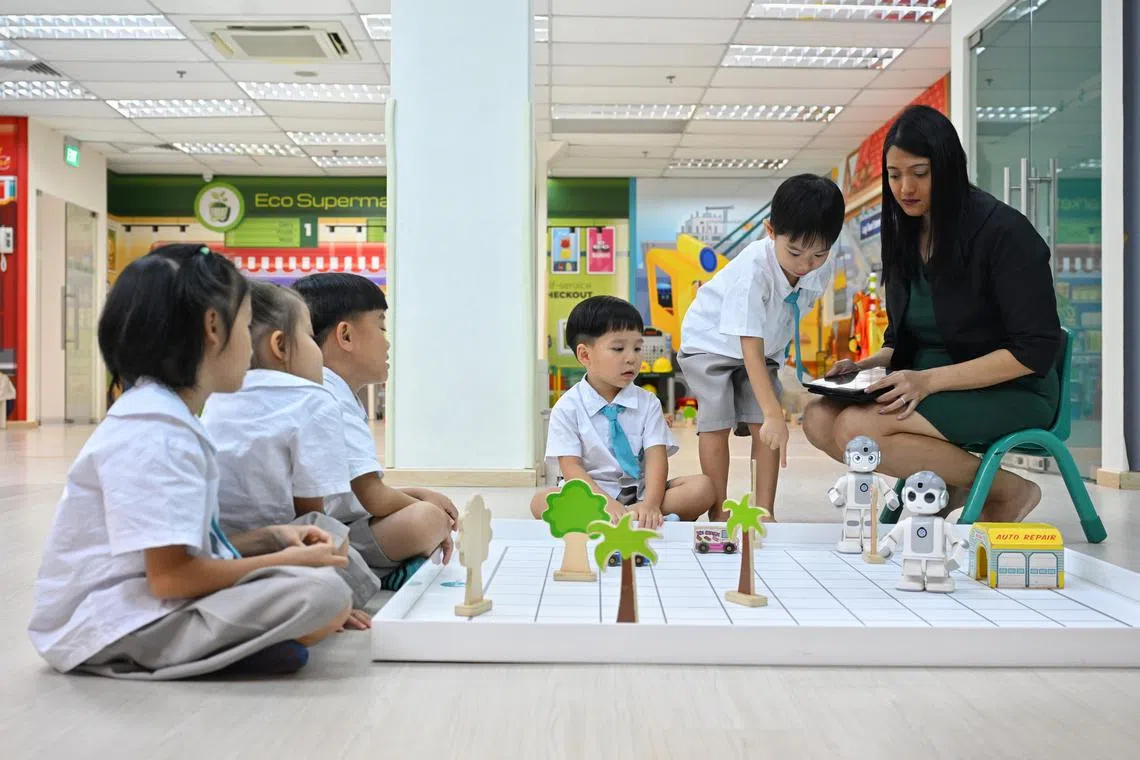
Ms Cheryl Francisco, head of curriculum development at Ednovation, believes AI literacy has to be developed from a young age.
ST PHOTO: SHINTARO TAY
SINGAPORE – When Ms Cheryl Francisco, 44, entered the pre-school sector two decades ago, she did not imagine that a day would come when AI-powered apps and robots would be used to help children learn.
Neither did Ms Francisco, who went on to become a principal and then a curriculum developer, think that she would be helping to develop lessons that incorporate the use of artificial intelligence (AI).
She currently heads the curriculum development team at Ednovation, an education technology company, which has customised a version of ChatGPT for young children to use.
She admits that it was not easy for her or her team of curriculum developers to get started.
“Like my colleagues, I just took the plunge, opened a ChatGPT account and started figuring it out, since my company decided that AI was going to be big, and we ought to study its potential in early childhood education,” she added.
Ms Francisco said it helps that she works for a company that believes in being ahead of the curve when it comes to new technologies.
Ednovation, founded by Dr Richard Yen, a Harvard-trained scientist-turned-edupreneur, was the first to develop and introduce computer-based learning in pre-schools here in 1991.
Currently, Ednovation operates more than 70 pre-schools and enrichment centres in Singapore, China and Asean countries.
Ms Francisco and her colleagues started familiarising themselves by reading up on ChatGPT and other AI tools such as Dall-E and Midjourney, which make AI-generated images. They also watched YouTube videos before going online to use some of the tools.
She said: “Like most people, I was initially blown away by its capabilities. As I gained a better understanding of the technology, I started seeing all the possibilities on how it can be used to engage and teach young kids.”
She and her colleagues then developed some lessons and visited the pre-schools to try them out with different groups of children. “I was mindful not to get carried away with the bells and whistles. It’s important to try it out and see where there’s real value in using AI.”
Over two years, she and her team have developed several AI-powered apps, including AI Maths and AI Chinese, which guide the children through a tailored revision process, suited to their pace and learning needs.
There’s also EdnoAI, an age-appropriate chatbot with voice activation that children use regularly in different ways – from learning more about dinosaurs to writing stories.
Ednovation plans to introduce AI Art in 2024. The enrichment programme combines traditional art-making with AI technology.
“Where I have found AI most useful is in customising learning. Children learn at different speeds and AI can help all children learn at the pace that’s right for them,” said Ms Francisco, a mother of two girls, aged seven and nine.
She said she and her colleagues continue to emphasise the development of children’s “human intelligence” – referring to creativity, EQ and moral values.
Ms Francisco believes that AI literacy has to be developed from a young age. “It will be a big part of their lives, and they should understand and master AI, so that they can work and live alongside it. I am glad I am playing a part in it.”
Photographer, 56, uses AI to bring his visions to life
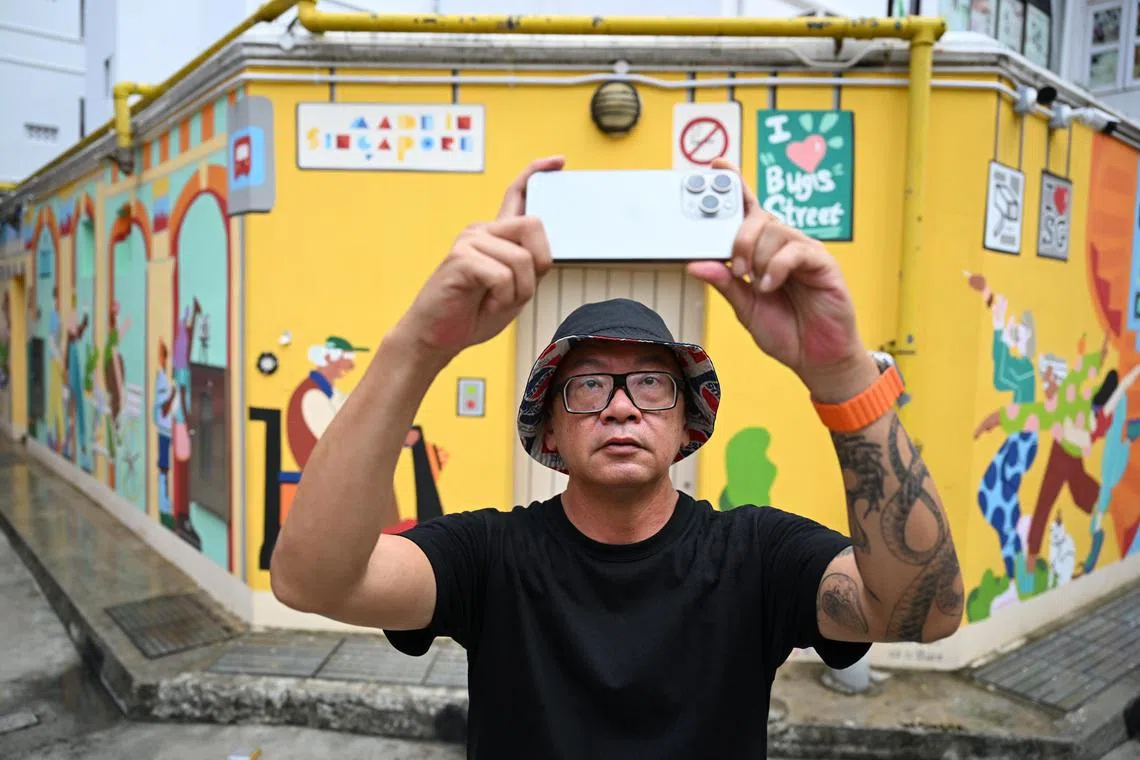
The Straits Times
When Mr Chia Aik Beng first heard about image generators Dall-E and Midjourney, he jumped at the opportunity to try them out.
He recalls experimenting with the very first versions of such artificial intelligence (AI) tools in 2021, and now, he is conducting workshops to teach others how to use them.
“But it’s still not easy, and every time I want to generate a picture, I still have to play around and (do) ‘trial and error’ with my prompts,” the 56-year-old photographer said.
Nurses save up to 10 minutes per patient with AI that senses when they leave their bed
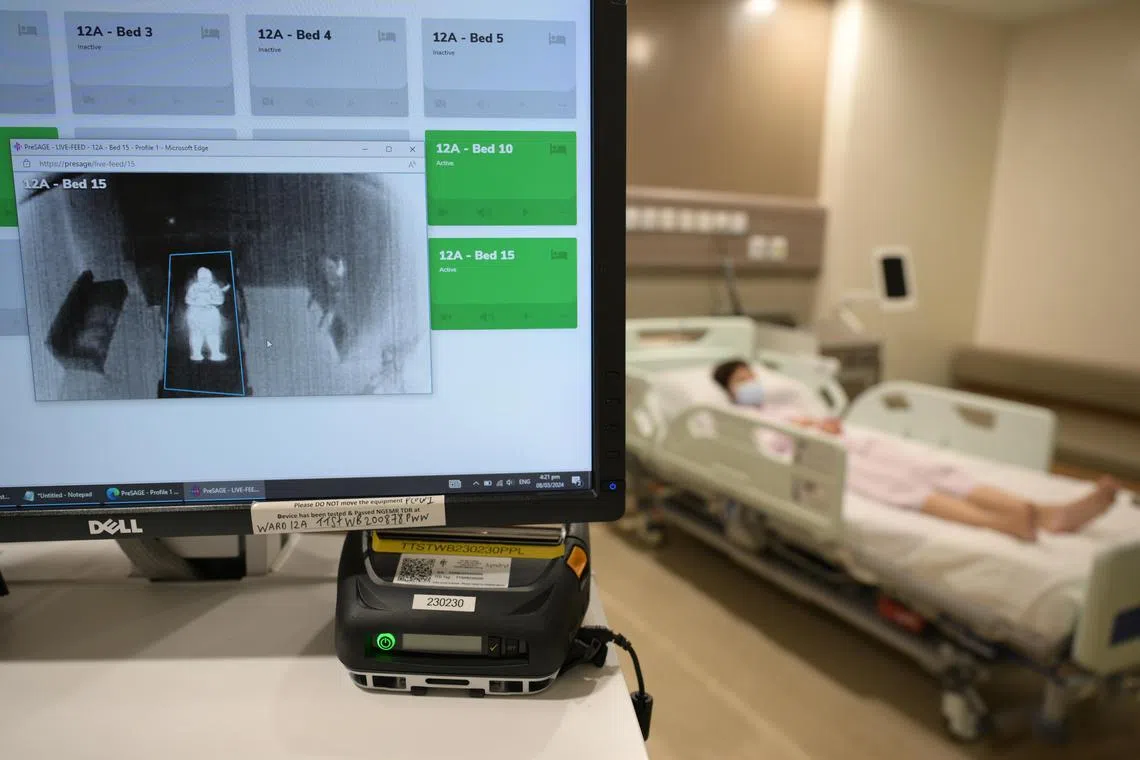
The Straits Times
Every minute is precious to nurses, said senior staff nurse Lee Jie Yin.
This is why she welcomes the use of artificial intelligence (AI) technology that senses when patients leave their bed, as it saves her valuable time.
Before the introduction of this technology in 2022, Ms Lee, 23, had to manually set up a fall sensor mat on each patient’s bed. These sensor mats are provided to patients with a fall risk.
Technology law firm integrates AI into everyday work
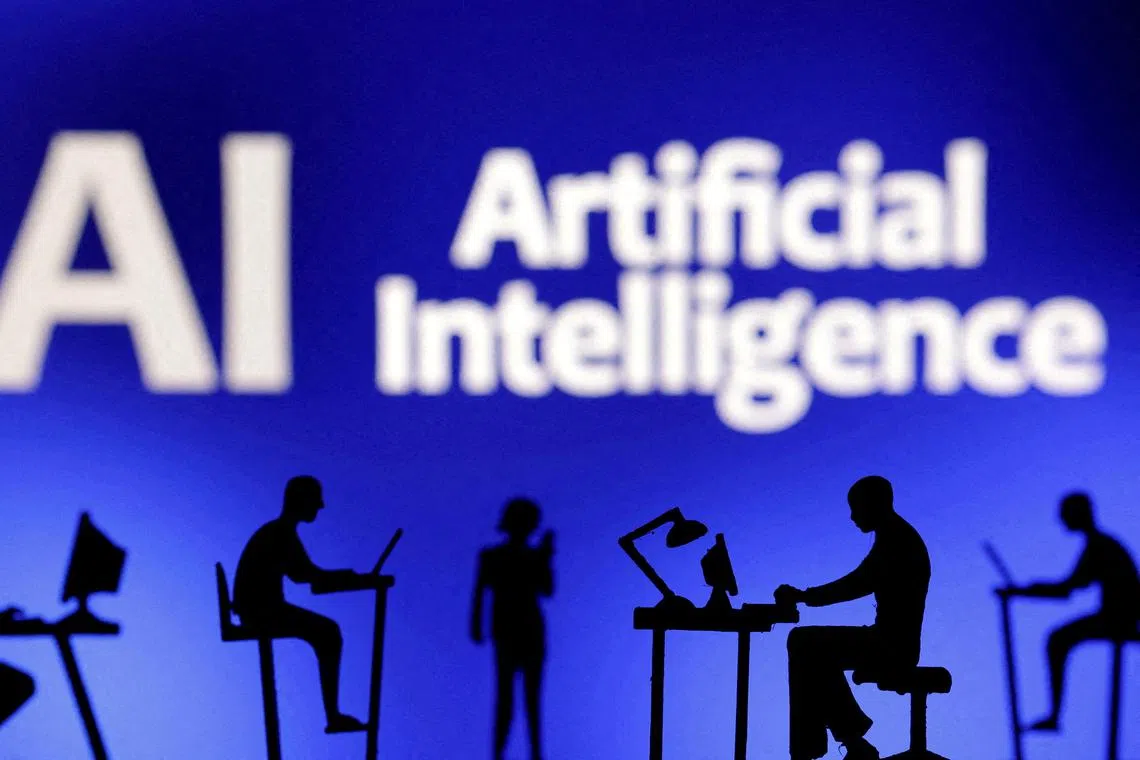
REUTERS
Ms Venessa Phoa is a senior associate at Ghows, a law firm that has five lawyers who specialise in technology, intellectual property and data privacy.
Since its formation in 2019, the firm has steadily implemented artificial intelligence (AI) technology to help manage operations and sharpen workflows.
Ms Phoa said she and her colleagues had spearheaded the push to adopt AI, though the initial encouragement to identify and research the new technology came from upper management.

